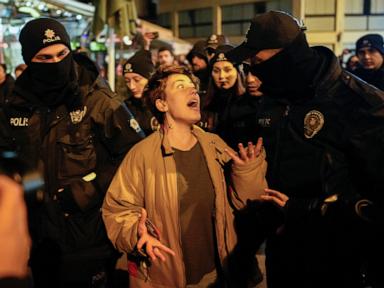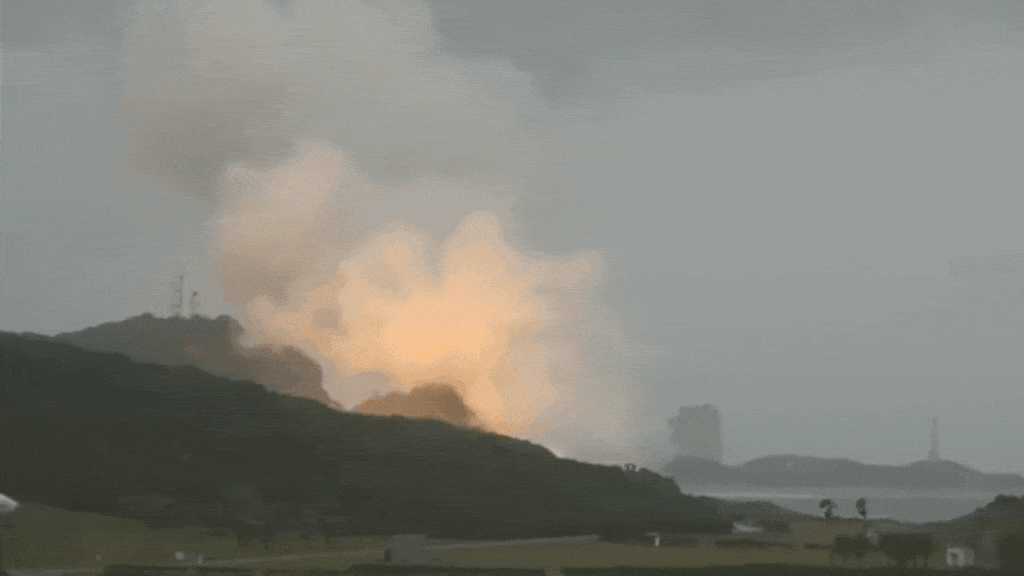ARTICLE AD BOX
IT was 4.17am and snowing outside when wedding photographer Mehmet Kaya was woken by his mother’s screams.
Their apartment building was violently shaking as one of history’s most devastating earthquakes struck Turkey.
 A Red Crescent grant has allowed Demet Aslan to get her makeshift flower shop up and running and to restart her lifeChris Eades - Commissioned by The Sun
A Red Crescent grant has allowed Demet Aslan to get her makeshift flower shop up and running and to restart her lifeChris Eades - Commissioned by The Sun Mehmet Kaya is also beginning to rebuild his life thanks to Sun readers’ generous donationsChis Eades - Commissioned by The Sun
Mehmet Kaya is also beginning to rebuild his life thanks to Sun readers’ generous donationsChis Eades - Commissioned by The SunIn seconds, Mehmet, 24, his parents, two sisters and a niece were engulfed by falling masonry and twisted metal.
His voice unsteady with emotion, Mehmet told me: “When I tried to escape, my right arm was outstretched and a falling concrete column trapped it and my right leg.
“When I opened my eyes I could see my father’s body.
“I didn’t want to move my left arm because the body of my six-year-old niece was there.”
Mehmet and pet cat Duman were the only survivors.
I didn’t want to live, I had lost all hope
Mehmet KayaFor 19 hours he lay entombed in concrete, with the corpses of mum Haline, 44, dad Erdal, 48, sisters Tugba, 28, and Yaren, 14, and niece Zeynep.
Showing me his wedding pictures with his smiling relatives, Mehmet choked back tears as he revealed: “Duman stayed by my mother’s side as I waited for rescuers.
“I didn’t want to live, I had lost all hope.”
Mehmet is today slowly rebuilding his life with the help of YOUR donations to the British Red Cross, known as Red Crescent in Islamic countries.
‘They didn’t forget us’
Now living in a 20ft shipping container in Kahramanmaras with wife Rabia, 21, they have received food, clothing and hygiene kits.
And the night terrors that tormented Mehmet have been eased by sessions with psychologists from the charity.
 Mehmet said that he lost all hope at the time of the earthquake hit, but is now able to sleep at nightChris Eades - Commissioned by The Sun
Mehmet said that he lost all hope at the time of the earthquake hit, but is now able to sleep at nightChris Eades - Commissioned by The Sun“I benefited from mental health support,” he revealed. “I can now sleep at night.”
Clutching pet cat Minika, Duman’s daughter, he said of kind-hearted Sun readers: “I thank them a lot.
“I feel lucky because they didn’t forget us.”
A year ago today, three of the tectonic plates making up part of the planet’s crust ground into each other, causing a magnitude 7.8 quake in Turkey and Syria.
In Turkey alone, more than 50,000 people perished and another 100,000 were injured.
Around 850,000 homes were destroyed and 4million buildings damaged.
I reported the apocalyptic scenes from Kahramanmaras at the quake’s epicentre.
The once-bustling textiles city of 570,000, framed by snow-capped mountains, looked as if it had been carpet-bombed. Nearly 7,500 buildings had crumpled.
Rescue crews were overwhelmed by the scale of the devastation as temperatures dipped below freezing.
Beneath what remained of each apartment block, relatives and friends frantically tried to dig through concrete debris with their bare hands.
Soon the International Red Cross and Red Crescent Movement were on the ground providing hot meals, blankets and baby clothes.
Generous Sun readers, many short of cash themselves amid the cost-of-living crisis, were quick to help those who had lost everything.
You raised an incredible £1.9million for our emergency appeal for the British Red Cross, backed by the Prince and Princess of Wales and Prime Minister Rishi Sunak.
We could hear the screams and tears of the children
Hasan CentinkayaAt a so-called “container city” of temporary homes in the remote town of Pazarcik, I saw last week how some of that cash has been spent.
Three generations of the Centinkaya family, who squeeze into one of the shipping units, have received food boxes, hygiene items and mental health support since the quake.
Visually-impaired Hasan, 41, pregnant wife Sultan, 42, and children Hasan Huseyin, 11, Elanur, ten, and six-year-old Ali Mert, all bed down on the floor of the cabin next to grandparents Huseyin, 70, and Medine, 63.
When the quake struck, the kids were staying with their grandparents near the family home.
Dad Hasan recalled: “The tremors first cut the electricity then our building collapsed.
“My wife and I were trapped inside.
“We could hear the screams and tears of the children.”
The couple eventually squeezed through a tiny hole above the door to be reunited with their weeping kids, who had come to search for them.
Looking heavenwards, Hasan added: “We hugged with joy to be alive.
“The children are still frightened of the earthquake.
“If the wind shakes the container, they panic.”
I watched last week as Red Crescent social worker Ayre Sagikara, 26, handed sweets to the children.
Thanking Sun readers, Hasan said: “I wish them a healthy life and to have happy times with their kids.”
In a container classroom nearby, a therapy session was taking place for a dozen child survivors.
Many remain traumatised, wetting the bed and fearful of entering high buildings.
Red Crescent psychologist Aysenur Altibag, 23, encouraged them to draw pictures with crayons, to assess their thoughts.
For some of the children, the drawing class is a chance for escapism.
‘Long road to recovery’
Her face painted with smiley faces, seven-year-old Miranur Zenginov showed me a picture she had drawn of space because “she wants to travel there by rocket”.
Beaming Taha Nijseytif, five, at therapy with twin Muhammed and 11-year-old sister Hale, then presented his creation.
 Red Crescent social worker Ayre Sagikara hands sweets to children, many of whom are still frightened by the earthquakeChris Eades - Commissioned by The Sun
Red Crescent social worker Ayre Sagikara hands sweets to children, many of whom are still frightened by the earthquakeChris Eades - Commissioned by The Sun Children draw pictures as a form of escapism in a therapy sessionChris Eades - Commissioned by The Sun
Children draw pictures as a form of escapism in a therapy sessionChris Eades - Commissioned by The SunThe kindergarten pupil told me he had sketched “a nice cake”.
He and Muhammed appear to be thriving, dreaming of becoming a doctor and a policeman.
Turkey has over 370 container cities, with schools and shops, housing more than 430,000 quake survivors.
President Recep Tayyip Erdogan blamed cowboy building contractors for the quake’s huge devastation.
He claimed they used cheap concrete and ignored construction standards.
More than 200 contractors and developers were arrested, including some trying to flee the country.
Demet Aslan’s makeshift flower shop and cafe now has computer equipment to print labels for her bouquets thanks to a Red Crescent grant.
The mum of two, 35, said: “The earthquake destroyed three apartment blocks where we lived, killing 150 of our neighbours.
“Afterwards we had to sleep in a car with another family. My husband and I were unemployed for seven months and we had twins to support.
“The help we received has allowed us to restart our lives.”
Red Crescent workers in the quake epicentre have their own stories of tragedy.
Nurse Kubra Timarcioglu, 27, who was away the time of the disaster, waited at the family home in Kahramanmaras for a week as rescuers tried to save her loved ones.
Sadly, Kubra’s parents Mustafa, 58, and Gonul, 47, along with sister Ebru, 23, perished.
 Nurse Kubra Timarcioglu’s parents and sister perished in the earthquake, but she has since spent her time trying to help others who were affected by the disasterChris Eades - Commissioned by The Sun
Nurse Kubra Timarcioglu’s parents and sister perished in the earthquake, but she has since spent her time trying to help others who were affected by the disasterChris Eades - Commissioned by The Sun She married Musab in October, who also works for the Red CrescentChris Eades - Commissioned by The Sun
She married Musab in October, who also works for the Red CrescentChris Eades - Commissioned by The SunThe medic added: “As a Red Crescent worker, I realised I could heal myself by healing others.”
Selflessly, she dedicated herself to supporting survivors with post traumatic stress disorder.
Hailing our readers’ generosity, she added: “People tell us, ‘Don’t forget us, don’t forget the earthquake’.”
In October, Kubra married Musab, 27, who also works for Red Crescent.
Crews who recovered her family’s remains were at the reception.
Kubra said: “They were the last and most important guests of our house.”
The Red Cross is also helping small businesses get back on their feet with cash grants.
Béatrice Butsana-Sita, chief executive of the British Red Cross, said: “We are so grateful to The Sun’s readers for your overwhelming support for this appeal.
“Without such generous donations, our work to help those impacted by these devastating earthquakes would not be possible.
“The road to recovery is long, but we will continue to be there for those hardest hit.”
Slowly, this devastated city is being reborn.
A triumph of human will over the savagery of nature.
SYRIA’S 12YRS OF MISERY
DISASTER-weary Syria had been ravaged by 12 years of civil war and the onslaught of IS when the earthquake struck.
Over 65 nightmarish seconds on February 6, 2023, the natural calamity laid waste to an exhausted and ill-prepared nation.
A country which had already seen some 13million people flee their homes – or even the country – due to conflict now saw as many as 5.4million displaced by the mammoth quake.
Crippled by the war and with many of the estimated 8,500 dead in rebel-held Northern Syria, rescuers were overwhelmed.
The Red Cross poured in funds to help local volunteers provide food, clean water and shelter.
.png)
 9 months ago
2
9 months ago
2








 English (US)
English (US)